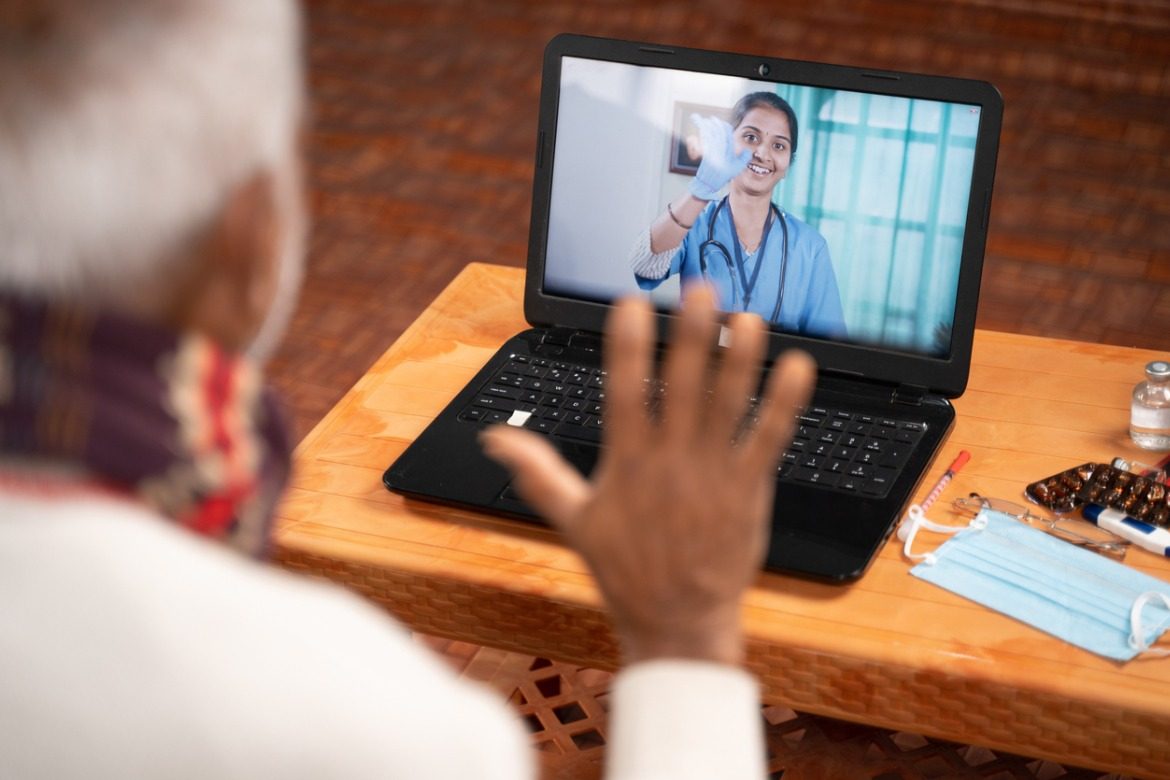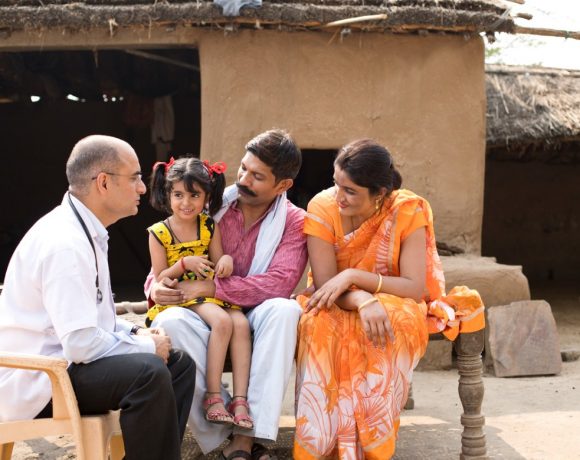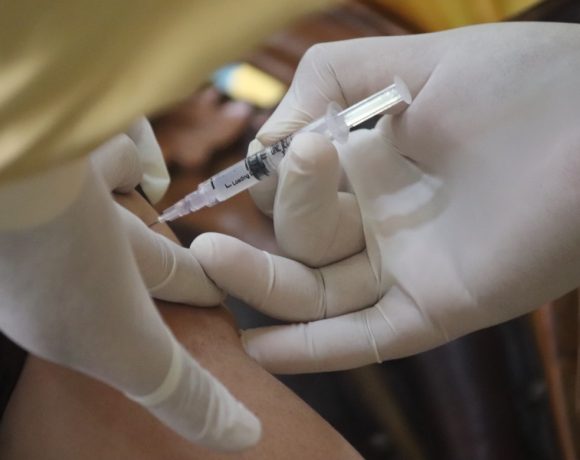- While digital technology has already changed how healthcare professionals practice, many are also frustrated or resistant to adapting because they do not know enough about the underlying information science in these new digital tools and systems.
- The trend requires front-line health workers to be familiar with digital technologies such as chatbots, machine learning, apps and IoMT and have the skills to use them effectively and safely for improving patient care and satisfaction levels.
- Besides having skills to holistically integrate the elements of technology in organisation, culture and existing infrastructure, the senior management needs to be equipped in dealing with cybersecurity concerns dealing with patients’ health data and transitioning the organisation from on-premises to the cloud environment.
Times are changing, and the healthcare industry is getting smarter than ever. Artificial intelligence, Big Data, the Internet of Things, Telemedicine, Robotics & Wearables are the new hands and brains in healthcare, altering the way healthcare is delivered, and the way outcomes are measured. It is evident from the tremendous growth of the digital healthcare market, which is expected to reach INR485.4 billion by 2024 from INR116.6 billion in 2018, growing at a CAGR of ~27.4 percent during 2019-2024 period.
Technology – Enabling transformation and raising concerns
With an immense focus on a technology-driven workplace, healthcare enterprises are fast adopting the latest technologies to stay abreast of and compete in the market. Many players are moving towards a hybrid business model to integrate off-line and online care. The preference shift from brick and mortar to virtual healthcare has moved the focus for reimagining the process and embracing digital to maximise efficiency and efficacy.
Digitalisation – Raising the bar, widening the gap
With this rapid transition in the business dynamics, changing consumer preferences towards digital services and evolving platform-based business models in healthcare, there is an increasing pressure to perform and sustain among hospitals, and parallelly a widening skill gap as a large chunk of healthcare professionals are still not tech friendly.
As healthcare institutions are undergoing a massive digital transformation, the cost of technology adoption is humongous, stressing out the balance sheet. Further, due to the gap in digital skills among the managers, right planning, optimal integration, assimilation and utilisation of technology is another challenge and often leads to the adoption of inappropriate technologies. While digital transformation is helping to address the gaps in healthcare, the digital upskilling of professionals is the key to better patient care outcomes and wider accessibility to the remotest part of the country. The demand for such upskilling is expected to surge by around 20 times compared to the projected supply by 2024.
Supply falling short of demand
Though the Covid-19 pandemic has been an accelerator in the easy and enhanced adoption of digital healthcare solutions, boosting the demand for tech-enabled contactless healthcare services, it has also widened the skill gap. With only 0.7 doctors and 1.7 nurses per 1,000 people in the country, compared to the World Health Organisation (WHO) average of 2.5 doctors and nurses per 1,000 people, healthcare demands are putting stress on the entire system.
The pandemic has exponentially pushed the demands of critical care, and India needs 1.5 lakh nurses and 50,000 doctors skilled in ICU care to meet the demand. According to a survey conducted by Local Circles during the first wave of COVID, of 17,000 individuals located in more than 211 districts across India, only four percent of patients who needed an ICU bed were able to find one, while 78 percent used connections in the hospital to secure an ICU bed. With nearly 75,000-90,000 ICU beds, India falls short of 500,000 ICU beds. With digital solutions being effective aids in democratising healthcare, the shortage of digitally skilled healthcare professionals has become more evident.
Impediments to change: The Wakeup call
While digital technology has already changed how healthcare professionals practice, many are also frustrated or resistant to adapting because they do not know enough about the underlying information science in these new digital tools and systems. Poor acquaintance with technology and lack of ability to use computers and access information systems among the clinical and support staff is a significant impediment to achieving the desired efficiency and effectiveness in patient care outcomes. Regularly busy and hectic schedules leave less time for professionals to be trained and upskilled. Lack of integration and frequent changes in the various applications and technologies in the healthcare institutions also creates hurdles in long-term adherence and usage among the staff while slowing down the process.
As per a study conducted by MIT Sloan and Capgemini among 1559 executives, 63% raised concerns over the very slow adoption of technology in their organisation due to ‘lack of urgency’ and ‘complexity of process’ while 78% of respondents agreed that within the next two years, achieving digital transformation will become critical to their organisations. Organisations lack clarity and the right approach towards developing management capabilities and technological skills, which, in turn, impedes the realisation of the potential of new technologies.
Digital Upskilling: Solution for the new normal
It’s time to train the frontline workers, senior-level executives and support staff in the digital skills to sustain this massive digital transformation. To tackle the situation, a holistic approach needs to be adopted. Front-line health workers must be familiar with digital technologies such as chatbots, machine learning, apps and IoMT and have the skills to use them effectively and safely for improving patient care and satisfaction levels. Upskilling doctors and nurses on remote intensive care monitoring could easily help bridge the critical care gap while preparing them to manage the shift from traditional to tech-driven ICUs. Institutions need to move from traditional training frameworks to digital alternatives that simulate real-world environments.
The senior management, besides having skills to holistically integrate the elements of technology in organisation, culture and existing infrastructure, need to be equipped in dealing with cybersecurity concerns dealing with patients’ health data and transitioning the organisation from on-premises to the cloud environment. Shifting from traditional to technology-driven business models requires digital savvy managers with the ability to improve processes and to design tech-based solutions that truly benefit patients and health workers. Specific training programs in understanding the implication and integration of data management and analytics, artificial intelligence, automation, and machine learning, which form the basis of operations, are crucial to efficiently managing the emerging digital healthcare enterprises.
Exposure to AI algorithms and robotics is vital as they play an important role in telemedicine, drug discovery and even hospital staff management. With the integration of technology at every level of business, adequate knowledge of digital technologies and skilling is unavoidable. Today, acquiring digital skills is no longer optional but an absolute necessity.
- Healthcare Sector Snapshot, Invest India, accessed on 21 October 2021
- https://www.business-standard.com/article/companies/there-is-a-shortage-of-digital-skills-across-sectors-nasscom-president-121021001697_1.html
- https://indiaeducationforum.org/pdf/ISR-2021.pdf
- Fridsma, D. (2018), “Health informatics; a required skill for 21st century clinicians”, BMJ, Vol. 362, p. k3034,
- https://sloanreview.mit.edu/projects/embracing-digital-technology/
- https://www.oecd-ilibrary.org/sites/8bd03416-en/index.html?itemId=/content/component/8bd03416-en






NO COMMENT